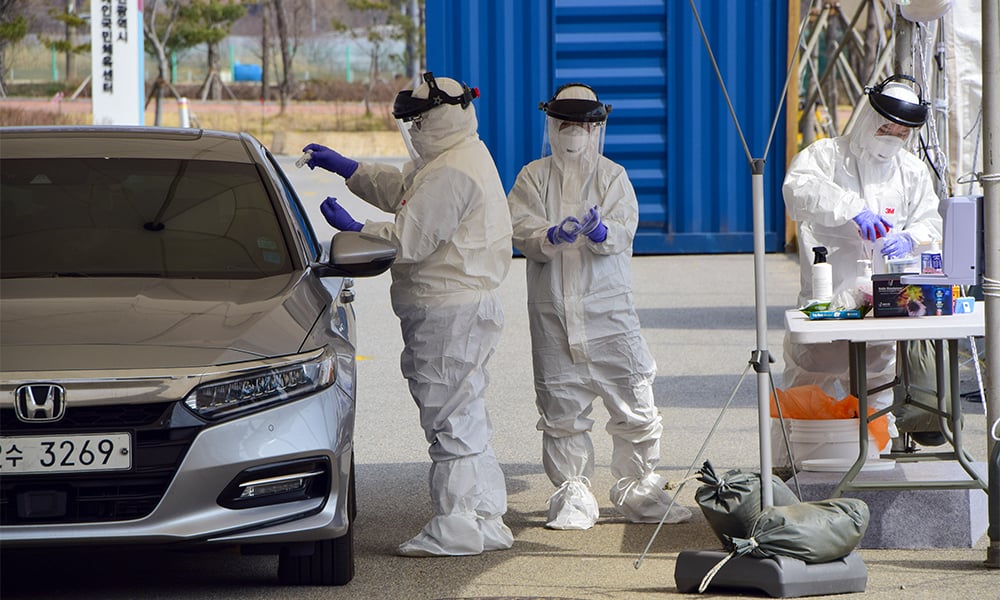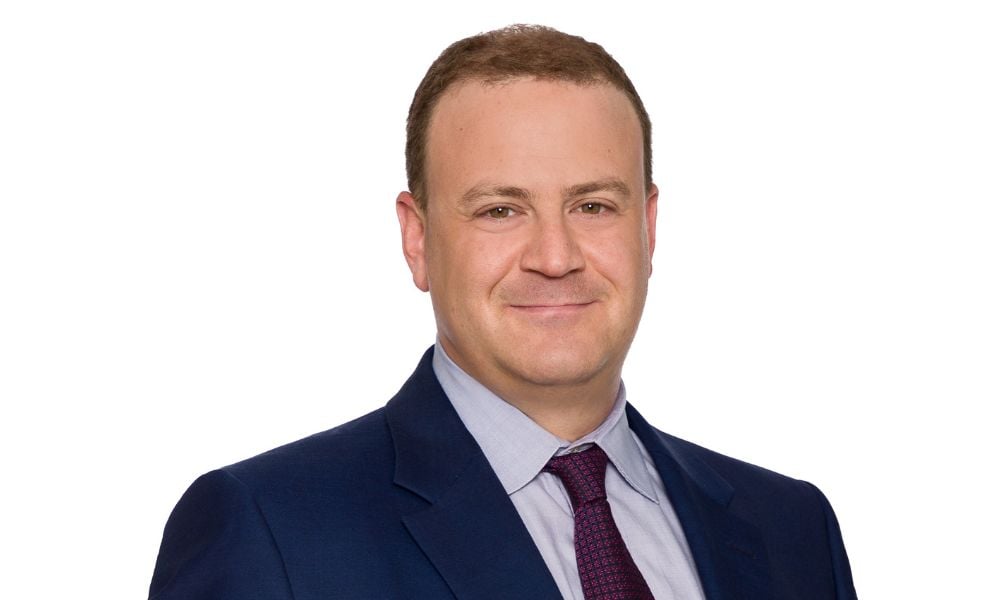Guide takes preventative approach to support providers on front lines

As many healthcare workers across Canada battle the coronavirus outbreak, a second health crisis may emerge that could debilitate that workforce: moral injury.
This is an issue that’s really like post-traumatic stress disorder (PTSD), says Patrick Smith, president and CEO of the Centre of Excellence PTSD and Related Mental Health Concerns at the Royal Hospital in Ottawa.
“It’s the after-effect of a number of moral stresses and dilemmas [that], left unchecked, can develop into moral injury which is debilitating, like PTSD: It needs clinical services. That area of research really comes from the military and veteran world.”
When treating COVID patients, healthcare workers can face issues that can bring on moral injury that include discharging young mothers early due to infection risk, constantly wearing personal protective equipment (PPE) which can negatively impact communications with elderly and immigrant patients, and working long hours and avoiding family, he says.
As a result, the Canadian organization partnered with the Melbourne-based Phoenix Australia Centre for Posttraumatic Mental Health to create Moral Stress Amongst Healthcare Workers During COVID-19: A Guide to Moral Injury, to assist healthcare workers in managing their COVID-related stress.
“We want to take a more upstream preventative approach to say if organizations are doing the right thing to put team-based supports, organizational-based supports, and then make available those individual supports now, then we don’t have to build that surge of responsive clinical services,” says Smith.
“At the end of the day, we will minimize the number of people who go on to develop PTSD and moral injury.”
The work on the guide began after researchers “recognized very quickly that there was going to be a huge healthcare toll taken,” he says.
“Clinicians working in this area immediately noticed that it was happening in real-life terms for healthcare providers. The pandemic has created unprecedented work situation for healthcare providers that they haven’t really been trained for.”

Patrick Smith
As the pandemic continues, a next wave of support for employees will be needed, says Smith.
“Most employers, while they are focusing on keeping services available for clients and patients, have also been trying to do everything they can to protect their workers. In the early days, they’re thinking PPE... It’s also time for us to think about the psychological PPE that people need. And sometimes that is just space to debrief about the challenges and frustrations about dealing with a virus where we don’t have all the answers.”
“We really do believe this is a call to action for employers to say, ‘You have an opportunity and an obligation to step up to the plate and do whatever we can to support your workers and it will prevent them having clinical-service needs down the road.’ Because if we don’t do what we can now to prevent it, we’ll never be able to treat our way out of it, after the fact,” he says.
Framework and supports
The guide is a “framework” for healthcare organizations to support workers who are on the front lines of what is being characterized as a battlefront, he says.
“Even some of the language like ‘heroes’ and ‘redeployment’; it’s using triaging MASH (mobile army surgical hospital) unit military adjectives and vocabulary.”
The guide outlines the supports that need to be provided at the organizational, team and individual levels. For example, at the organizational level:
- promoting a supportive culture, including support services, for staff
- rotating staff between high- and low-stress roles
- establishing policies to guide staff through ethically difficult decisions
- removing ethical difficult decisions from frontline workers
And at the team level:
- providing strong leadership and establish cohesive teams with high morale
- being prepared to discuss moral and ethical challenges
- helping team members understand moral stressors
- celebrating successes, large and small
Supporting a worker’s mental health is seen as a crucial way to help them cope, according to a recent survey, while some are saying a mental health crisis for employees may yet ensue, especially as we continue to see waves of infections.
The guides will be distributed to various organizations such as VETS Canada, Wellness Together Canada and the Homewood Institute, through Veterans Affairs Canada, which funds the Centre of Excellence, according to Smith.
“We’re working with all peer organizations in Canada to develop rapidly a peer toolkit, so how they can use this guide for veterans, peer-support workers and family peer-support workers. These are often organizations that don’t have HR departments to sit and talk about all the wellness supports that that the workforce needs, so we’re working to make sure that also healthcare workers that serve veterans and families that they have access to this guide.”




